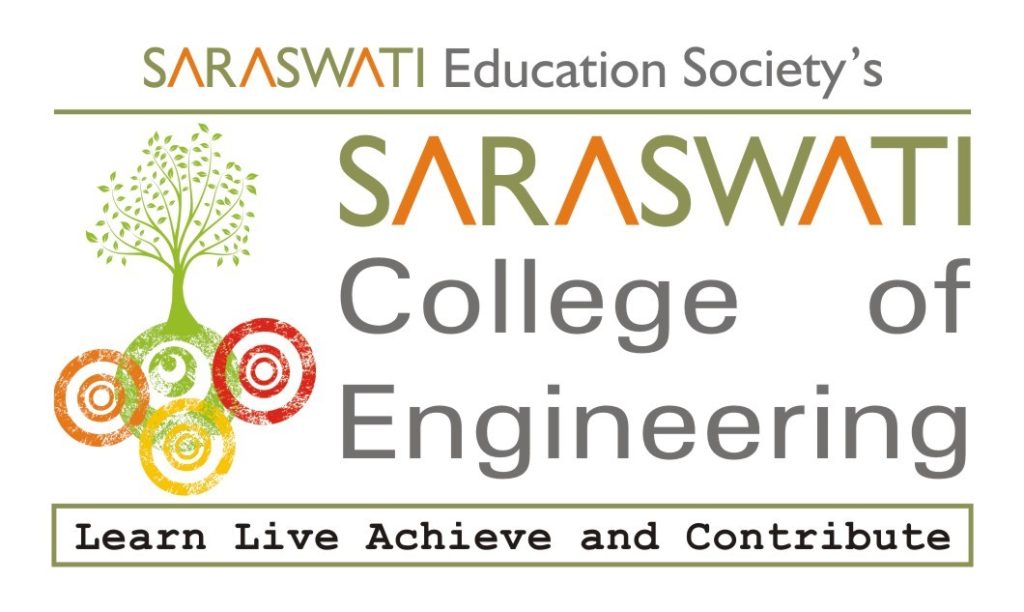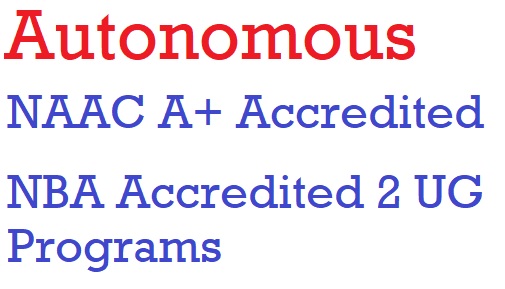Best Engineering Courses After 12th in 2025: Eligibility, Fees & Career Guide
Introduction
Choosing a career after Class 12th is one of the biggest decisions in a student’s life – and for the majority of young Indians, engineering continues to stand out as the most promising path. With over 1.5 million new engineering jobs projected in India by 2026, the Engineering field is not just alive; it’s thriving.
The reasons are clear. From AI and renewable energy to smart cities and automation, engineers are the ones shaping these changes. Freshers today are already starting their careers at anywhere between ₹5–20 LPA, depending on the branch and role. The bigger challenge, however, isn’t whether you should do engineering – it’s deciding which course is right for you. That’s exactly what this guide will help you figure out.
But here’s the challenge: the world of engineering is changing faster than ever. For students and parents, the question is no longer “Should I choose engineering?” but rather “Which engineering course after 12th in 2025 is the best fit for me?”. This guide breaks down that puzzle, as the answers start here.
Why Pursue Engineering After 12th in 2026?
Engineering has always been about solving problems, but in 2026, the opportunities are larger and more diverse than ever. Global industries are undergoing massive transformation, and students entering engineering today will graduate into a future that looks very different from the past.
Consider this: the artificial intelligence market is expected to reach $1.81 trillion by 2030. India has committed to achieving 500 GW of renewable energy capacity by the same year, creating huge demand for engineers in energy, sustainability, and infrastructure. Add to this the rise of automation, robotics, and electric vehicles, and it’s clear why engineering graduates remain in high demand.
Now, what does this mean for students? The placement rates have risen over 90% in the top engineering fields in India. The recruiters are seeking not just technical knowledge but also practical skills, such as problem-solving, coding, analytical thinking, and teamwork. Unlike many other careers, engineering offers a global opportunity for graduates to work with multinational companies, research labs, or even start their own ventures.
How to Become an Engineer After 12th?
Becoming an engineer in India follows a structured path that starts right after Class 12th. The first requirement is eligibility:
- Students must complete 10+2 with Physics, Chemistry, and Mathematics (PCM)
- Secure at least 50% aggregate marks (some reserved categories may have relaxed criteria).
This foundation ensures that you have the analytical and problem-solving skills required for technical studies. The next step is the entrance exams. The two most common routes are:
- JEE Main, a national-level exam that opens doors to IITs, NITs, and several private universities.
- State-level exams for engineering colleges in the respective states, like MHT-CET in Maharashtra.
Once results are declared, the admission process begins. Counselling typically starts in June, just after the board and entrance results are released. Students must register online, list their preferred colleges and courses, and attend document verification at Facilitation Centres. Based on merit and seat allotment rounds, they receive their admission offers.
Top Engineering Courses After 12th in 2025
Computer Science
Computer Science Engineering continues to be the most in-demand choice after 12th. From building apps and websites to powering AI systems and cybersecurity solutions, CSE graduates shape how the world works digitally. In 2025, as industries digitize, CSE remains the gateway to innovation, startups, and global tech careers.
Eligibility:
- 10+2 with Physics, Chemistry, Mathematics (minimum 50% aggregate)
- Entrance exams: JEE Main, MHT-CET, or institute-specific tests
Tuition Fees:
- Government/Autonomous colleges: ₹2–4 lakh (entire course)
- Private colleges: ₹8-9 lakh (entire course)
- Premier institutes (IITs/NITs): ₹6–10+ lakh (entire course)
Artificial Intelligence & Machine Learning (AI & ML)
AI & ML engineers design the brains behind smart systems. From voice assistants and chatbots to self-driving cars and medical imaging, AI & ML are shaping how technology interacts with people. In 2025, this branch stands out for students eager to shape how machines think, learn, and transform human life.
Eligibility:
- 10+2 with Physics, Chemistry, Mathematics (minimum 50% aggregate)
- Entrance exams: JEE Main, MHT-CET, or university-level tests
Tuition Fees:
- Government/Autonomous colleges: ₹2–4 lakh (entire course)
- Private universities: ₹6–10 lakh (entire course)
- Premier institutes with AI specializations: ₹8–12+ lakh (entire course)
Data Science
Data Science turns raw information (collected data as an input) into powerful insights that drive decisions in finance, healthcare, e-commerce, and more. In 2025, it is the go-to branch for students who enjoy statistics, coding, and uncovering patterns hidden in big data.
Eligibility:
- 10+2 with Physics, Chemistry, Mathematics (minimum 50% aggregate)
- Entrance exams: JEE Main, MHT-CET, or institute-level admissions
Tuition Fees:
- Government/Autonomous colleges: ₹2–3 lakh (entire course)
- Private universities: ₹5–8 lakh (entire course)
- Specialized institutes offering Data Science: ₹8–10+ lakh (entire course)
Information Technology (IT)
Information Technology drives the digital backbone of businesses – managing networks, building apps, and securing data. In 2025, IT remains ideal for students who want to blend coding skills with problem-solving to keep organizations connected, efficient, and future-ready.
Eligibility:
- 10+2 with Physics, Chemistry, Mathematics (minimum 50% aggregate)
- Entrance exams: JEE Main, MHT-CET, or institute-level admissions
Tuition Fees:
- Government/Autonomous colleges: ₹2–3 lakh (entire course)
- Private universities: ₹4–8 lakh (entire course)
- Specialized institutes offering Data Science: ₹6–10+ lakh (entire course)
Mechanical Engineering
Mechanical Engineering powers the machines that move the world – cars, aircraft, turbines, and robots. In 2025, it will attract students fascinated by design, manufacturing, and innovation in automation, aerospace, and renewable energy technologies.
Eligibility:
- 10+2 with Physics, Chemistry, Mathematics (minimum 50% aggregate)
- Entrance exams: JEE Main, MHT-CET, or institute-level admissions
Tuition Fees:
- Government/Autonomous colleges: ₹2–4 lakh (entire course)
- Private universities: ₹4–8 lakh (entire course)
- Specialized institutes offering Data Science: ₹6–10+ lakh (entire course)
Civil Engineering
Civil Engineering builds the backbone of society – roads, bridges, metro lines, and smart cities. In 2025, it appeals to students who want to shape sustainable infrastructure and contribute to India’s rapid urban development and green construction projects.
Eligibility:
- 10+2 with Physics, Chemistry, Mathematics (minimum 50% aggregate)
- Entrance exams: JEE Main, MHT-CET, or institute-level admissions
Tuition Fees:
- Government/Autonomous colleges: ₹2–3.5 lakh (entire course)
- Private universities: ₹4–7 lakh (entire course)
- Specialized institutes offering Data Science: ₹6–10+ lakh (entire course)
Automobile Engineering
Automobile Engineering fuels the future of mobility – designing cars, EVs, and intelligent transport systems. In 2025, it’s perfect for students passionate about vehicles, sustainable energy, and innovation in electric and autonomous driving technologies.
Eligibility:
- 10+2 with Physics, Chemistry, Mathematics (minimum 50% aggregate)
- Entrance exams: JEE Main, MHT-CET, or institute-level admissions
Tuition Fees:
- Government/Autonomous colleges: ₹2–4 lakh (entire course)
- Private universities: ₹4–8 lakh (entire course)
- Specialized institutes offering Data Science: ₹6–10+ lakh (entire course)
Engineering Courses Without Maths
Can you pursue engineering without Maths after 12th? The answer is yes. In 2025, exciting fields like Biotechnology, Biomedical, and Environmental Engineering open doors for students from PCB or non-Maths backgrounds. These programs let innovators contribute to healthcare, sustainability, and design – without the barrier of advanced calculus.
Popular Options:
- Biotechnology Engineering – merges biology and technology for innovations in medicine, agriculture, and genetics.
- Biomedical Engineering – focuses on medical devices, imaging systems, and healthcare solutions.
- Environmental Engineering – tackles pollution control, water treatment, and sustainable projects.
- Agricultural Engineering – modern farming technologies and machinery.
- Architecture (via NATA exam) – open to students without PCM.
- Marine Engineering (with PCB + bridge Maths courses) – select universities allow entry.
Diploma to Degree Routes:
- Students with engineering diplomas can enter directly into the 2nd year of B.Tech through lateral entry programs.
Career Paths and Salary Trends
An engineering degree is more than a classroom achievement – it’s a launchpad into industries that define the future. In 2025, companies aren’t just hiring engineers; they’re competing for them. Whether it’s coding AI models, designing metro bridges, or developing EVs, every branch leads to specialized roles with rewarding career paths and competitive starting packages.
Average Starting Salaries for Engineers by Branch (India, 2025):
| Branch | Career Paths | Average Starting Salary (LPA) |
| Computer Science | Software Developer, Cloud Engineer, Cybersecurity Analyst | ₹6-12 |
| AI/ML | AI Engineer, Machine Learning Scientist, Data Engineer | ₹8-20 |
| Data Science | Data Analyst, Business Intelligence Engineer, Research Associate | ₹6-12 |
| IT | IT Analyst, Systems Engineer, Network Administrator | ₹6-8 |
| Mechanical Engineering | Design Engineer, Manufacturing Engineer, Robotics Specialist | ₹5-9 |
| Civil Engineering | Structural Engineer, Urban Planner, Project Engineer | ₹5-8 |
| Automobile Engineering | Vehicle Design Engineer, EV Engineer, Quality Engineer | ₹5-9 |
Emerging Engineering Roles in 2025:
- Cloud Engineer – powering digital infrastructure
- AI Research Associate – developing next-gen models
- EV Design Engineer – shaping sustainable mobility
- Smart Infrastructure Consultant – building future-ready cities
Why Choose SCOE for Your Engineering Journey in 2025?
When students choose a college, they’re not just picking classrooms – they’re picking a future. At Saraswati College of Engineering (SCOE), Navi Mumbai, every aspect of the journey is designed to prepare graduates for tomorrow’s industries. With 20+ years of excellence, 50+ awards, 2,500+ active students, and a strong alumni base of 15,000+, SCOE has become a trusted destination for engineering aspirants.
What Sets SCOE Apart:
- Academic Credibility: Autonomous, NAAC A+ accredited, NBA-accredited branches, and affiliated with the University of Mumbai.
- Programs Offered: Computer Science, AI & ML, Data Science, IT, Mechanical, Civil, and Automobile Engineering.
- Placement Strength: Strong recruiter ties with TCS, IBM, L&T, Hexaware, and other industry leaders.
- Future-Ready Learning: Modern labs, hands-on training, and placement-focused preparation.
- Community & Support: Active student clubs, mentoring, and an alumni network creating industry connections.
Conclusion
The future belongs to engineers who can adapt, innovate, and lead change. From building smarter cities to coding intelligent machines, the possibilities after 12th are limitless if you choose the right path. As you explore your options, remember – your college is where that journey begins.
With its strong academics, accreditations, and placement record, SCOE is ready to shape your success in 2025. Explore SCOE’s admissions to secure your future in engineering.
FAQs
- Which is the best engineering course after 12th in 2025?
Computer Science, AI & ML, and Data Science are top choices in 2025 for global demand, high salaries, and diverse career opportunities. - Can I pursue engineering without Maths after 12th?
Yes, fields like Biotechnology, Biomedical, Environmental, Agricultural Engineering, and Architecture (via NATA) allow non-Maths students to pursue technical careers. - Which entrance exam is required for engineering admission in 2025?
JEE Main and state exams like MHT-CET are primary gateways, while some universities also conduct institute-level entrance tests. - Which engineering branch offers the highest salary for freshers?
AI & ML, Data Science, and Computer Science branches offer the highest fresher salaries, ranging between ₹8–20 LPA in 2025. - How much does it cost to study engineering in India in 2025?
Engineering tuition fees range from ₹2–4 lakh in government colleges to ₹6–12+ lakh in private or premier institutes for the full course.


